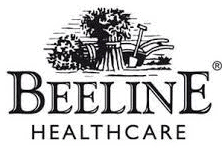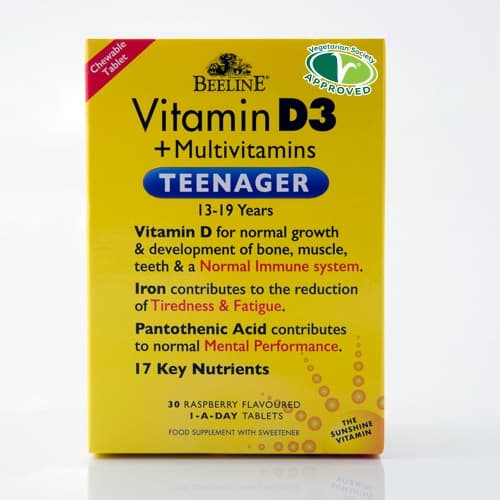Teenage Nutrition and Vitamin Deficiency
National survey highlights that Irish teens are not consuming enough fibre, fruit, vegetables, calcium, iron, folate, riboflavin or vitamins A, B, C and D.
Results from The National Teens’ Food Survey show that Irish teenagers are not eating enough fibre, fruit and vegetables. Significant numbers of adolescents have inadequate intake of fibre, calcium, vitamin D, vitamin C, folate, vitamin A, vitamin B6, iron and riboflavin. A well-balanced diet combined with food supplements can provide the key nutrients, vitamins and minerals for young adults to contribute towards good health, bodily growth and mental performance.
Food Research in Ireland
The National Teens’ Food Survey in the Republic of Ireland was conducted to establish a national database of food consumption amongst teenagers aged 13 to 18 years to address both nutrition and food safety issues, as well as understand physical activity amongst that age group.
Funded by the Department of Food, the study was conducted by researchers in University College Dublin, Munster Technological University, University College Cork and Technological University Dublin. These included Professor Albert Flynn from UCC, Dr Janette Walton from MTU, Dr Breige McNulty from UCD and Professor John Kearney from TU Dublin. There were 428 teens that took part in the survey in Ireland.
Dr Janette Walton from Munster Technological University stated:
“the focus needs to be on promoting guidelines for healthy eating such as increasing the intake of vegetable, fruit and other foods that provide key vitamins and minerals.”
Teenage Nutrition and Diet
The study of teenage diets has highlighted a number of nutritional concerns leading to health issues. Many youths are not eating a healthy diet to provide the required levels of vitamins, minerals and nutrients. According to the survey, 75% of teenagers found it difficult to eat a healthy diet.
Breads, potatoes, cereals, milks, meats, fruits and vegetables are staple foods in the diets of Irish teens. However, teenagers are not eating enough fruit or vegetables. Intake is less than 3 servings per day, which is below the recommended 5 to 7 per day.
Adolescent Energy and Nutrients
For energy, teens are not eating enough dietary fibre and relevant nutrients.
Compared to historical studies, teens have reduced their intake of sugar, salt, sugar-sweetened drinks, fruit juice, milk and potatoes. However, sugar, salt and saturated fat consumption is higher than recommended. Saturated fat accounted for 14% of total energy intake, which is above the recommended intake of no more than 10%.
Body Weight and Teenage Obesity
In recent years, there has been an increase in the levels of teenage obesity. Overall, 24% of teenagers were classified as overweight or obese. While participation in physical exercise is high, time spent indulging in sedentary behaviours such as screen time are very high. This combines with dietary issues, along with insufficient intake of key nutrients and vitamins, which lead to increasing health concerns for boys and girls.
Vitamin Deficiency in Teenagers
Vitamin deficiency is becoming more prevalent amongst the Irish population. According to the Irish survey, significant numbers of teenagers having inadequate intakes of dietary fibre, calcium, iron, vitamin D, vitamin C, folate, vitamin A, riboflavin and vitamin B6.
Vitamin D
Vitamin D supports a health immune system. It also assists adolescent boys and girls with normal growth and development of bones, muscles and teeth.
Calcium
Calcium is a mineral that is essential for healthy bones and teeth. It contributes to youngsters’ bone development and growth.
Vitamin C
Vitamin C is an essential nutrient that supports a healthy immune system. It is an antioxidant that helps the body to combat infections. Vitamin C is also important for the formation of collagen. As human bodies do not produce vitamin C or store it for any length of time in the body, it is important to consume vitamin C through your diet and supplements.
Iron
Iron is an essential mineral that supports normal energy levels in adolescents and contributes to normal mental performance. It helps overcome tiredness and fatigue.
Vitamin A
Vitamin A plays an important role helping our vision, immune system, reproduction systems, heart, lungs, kidneys and other organs. Vitamin A sources include food such as meat, dairy, poultry and fish. It is also contained in Beeline Multivitamin tablets.
Vitamin B
There are eight B vitamins which support energy levels, good health, metabolism, the nervous system, performance, digestion and the immune system.
Riboflavin or vitamin B2 supports the nervous system, eyes and skin. It also helps the body release energy from food, and assists red blood cell production for carrying oxygen around the body.
Pyridoxine or vitamin B6 helps our red blood cells transport oxygen around the body to cells, muscles and organs. It plays a vital role in sugars, fats and proteins providing energy for the body.
Folate or vitamin B9 can be sourced in certain foods and folic acid supplements. It helps the body make healthy red blood cells, reduces the risk of common birth defects and prevents folate deficiency anaemia. Consuming sufficient levels of folate is very important during life stages of bodily growth such as during adolescence, infancy or pregnancy.
Supplements for Teens
The National Teens’ Food Survey found that 14% of teenagers took food supplements. The most common supplement ingested were multivitamins.
A supplement for teenagers has been specifically developed by Beeline Healthcare for those aged 13 to 19 years. Beeline Teenager Vitamin D3 and Multivitamins Tablets help support the nutritional needs of adolescents. It includes vitamin D3, iron, pantothenic acid and 17 key nutrients to help support teenagers with energy, growth, mental performance and good health.


